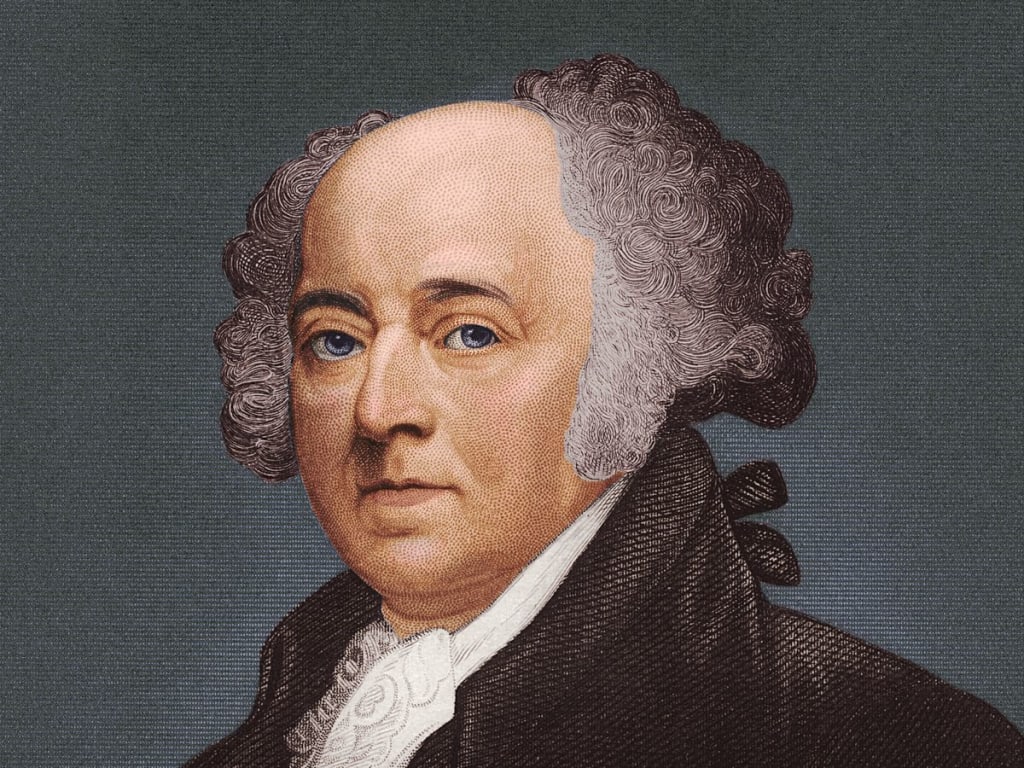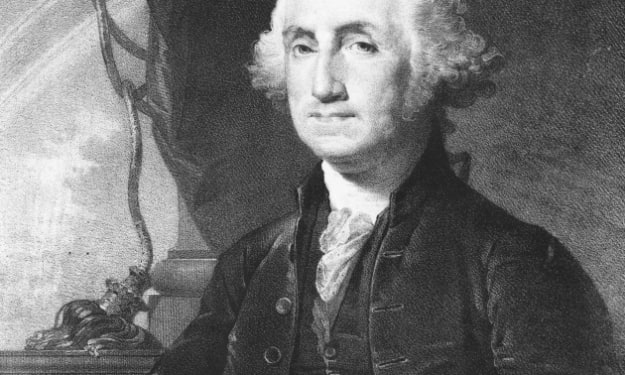John Adams: A Visionary Statesman and the Architect of American Independence
From Revolution to Presidency, Unveiling the Legacy of the Second President

Introduction:
John Adams, a distinguished Founding Father and the second president of the United States, played a vital role in the early years of the nation's history. Known for his intellect, passion for liberty, and unwavering dedication to the principles of independence, Adams left an indelible mark on American governance. This article delves into the life, achievements, and enduring legacy of John Adams, highlighting his pivotal role in the American Revolution, his contributions as a statesman, and his commitment to the principles of a strong and united nation.
Early Life and Legal Career:
Born on October 30, 1735, in Braintree, Massachusetts (now Quincy), John Adams grew up in a devoutly Puritan family. He received a quality education at Harvard College, where he developed a keen interest in law and politics. After completing his studies, Adams embarked on a successful legal career, earning a reputation for his sharp legal acumen and unwavering commitment to justice.
The American Revolution and Founding Principles:
Adams' passion for liberty and his staunch advocacy for American independence propelled him into the forefront of the revolutionary movement. He was a key figure in the drafting of the Declaration of Independence and played a critical role in its adoption by the Continental Congress. Adams' eloquent defense of the rights of the American colonies, his tireless diplomatic efforts, and his unwavering commitment to the cause of freedom earned him respect and admiration among his peers.
Statesmanship and Diplomacy:
John Adams' dedication to public service extended beyond the Revolutionary War. He served as a diplomat, representing American interests abroad during a crucial period of nation-building. As the first U.S. ambassador to Great Britain, he worked tirelessly to negotiate a favorable peace treaty, bringing an end to the Revolutionary War and securing recognition of American independence.
Adams' diplomatic acumen also came to the forefront during his tenure as the U.S. ambassador to the Netherlands, where he successfully secured loans and support for the fledgling nation. His diplomatic achievements laid the foundation for a robust foreign policy that would shape American relations with other nations for years to come.
Presidency and Legacy:
In 1796, John Adams was elected as the second president of the United States, succeeding George Washington. His presidency was marked by challenges and achievements that solidified the young nation's foundations. Adams faced the delicate task of maintaining neutrality during the escalating tensions between Britain and France, ultimately preserving American sovereignty and avoiding a costly war.
Adams' commitment to a strong federal government and the rule of law was exemplified in his appointment of John Marshall as Chief Justice of the Supreme Court. Marshall's influential tenure would later shape American jurisprudence and establish the Court's power of judicial review.
Although Adams faced political opposition and controversy during his presidency, his unwavering commitment to the principles of liberty, justice, and the well-being of the nation were evident throughout his tenure. Adams' decision to peacefully transfer power to his political rival, Thomas Jefferson, after losing the presidential election in 1800, set an important precedent for the peaceful transition of power in American democracy.
Enduring Legacy:
John Adams' influence extends far beyond his presidency. His contributions to the early years of the United States helped shape the nation's character and laid the groundwork for its future development. His advocacy for a strong central government and the protection of individual rights provided a framework that continues to guide American governance.
Adams' intellectual prowess and commitment to education were evident in his support for the founding of Harvard Law School, which has since become a prestigious institution of legal education. His writings, particularly his correspondence with his wife, Abigail Adams, offer profound insights into the challenges and aspirations of the era.
Conclusion:
John Adams, a visionary statesman and the second president of the United States, played a crucial role in shaping the nation's early years. His dedication to the principles of liberty, justice, and a strong central government left an indelible mark on American governance. Adams' unwavering commitment to the cause of independence, his diplomatic achievements, and his contributions to the establishment of the nation's institutions continue to inspire generations of Americans. As the nation reflects on its history, the figure of John Adams stands as a testament to the enduring values of liberty, democracy, and public service.
About the Creator
Enjoyed the story? Support the Creator.
Subscribe for free to receive all their stories in your feed. You could also pledge your support or give them a one-off tip, letting them know you appreciate their work.





Comments
There are no comments for this story
Be the first to respond and start the conversation.